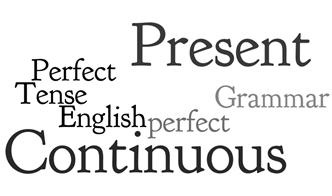If your students are currently living in a city that is not their hometown, would they say they've lived there or they've been living there for a while? Either tense will do if they wish to convey that they didn't always live there, but they're living there now. Which is why ESL students are often unclear as to when it is best to use the present perfect continuous tense. The present perfect continuous is the best choice when the action is still continuing, and you wish to emphasize its duration and not the result.
How To Proceed
-
1
Introduce the Present Perfect Continuous
Ask students if they play any musical instruments and when they started playing them. Use the information supplied by them to introduce the present perfect continuous:
T: Juan has been playing the guitar for 5 years. Mario has been playing the piano for a few months.Make sure students see the emphasis on the continuity of the action. Juan and Mario are still actively playing these instruments. Show students how the present perfect continuous is formed: Have/has + been + present participle
-
2
Practice the Present Perfect Continuous
Ask students to give more examples through substitution.
T: Carlos Tevez started playing football when he was a child.
Prompt students to say:
S: He has been playing football since he was a child.T: Oscar started listening to opera when he was in Italy.
S: He has been listening to opera since he was in Italy.Continue with more substitutions. For extended practice try this fun worksheet where students have to guess what a classmate has been doing. More advanced learners or adults may be given this Present Perfect Continuous Game to play, where they have to tell classmates what they have been doing based on a specific job card.
-
3
Introduce the Present Perfect Continuous – Interrogative forms
Ask students which sports they currently play.
S: I play tennis.
Model questions with how long, where, etc...
T: How long have you been playing tennis?
S: I’ve been playing for about a year.Use affirmative statements as prompts for student questions:
T: I swim twice a week.
S: How long have you been swimming twice a week?
S2: Where have you been swimming?Students make affirmative statements of things they are currently doing as prompts for their classmates’ questions.
-
4
Introduce the Present Perfect Continuous – Negative forms
Make an affirmative statement followed by a negative one: I have been swimming twice a week. I haven’t been dancing twice a week. Use the information supplied by students to make incorrect statements, which they have to correct:
T: Juan has been playing tennis for several years.
S: I haven't been playing tennis for several years. I've been playing for almost a year. -
5
Introduce the Present Perfect Continuous – Short answers
Ask yes or no questions and teach students to give short answers:
T: Have you been studying for next week’s test?
S: Yes, I have./No, I haven’t.Students ask classmates yes or no questions, and classmates reply with short answers. Make sure they place emphasis on actions that are continuing.
-
6
Expand on all of the situations in which you’d use this tense
Above all, make sure students are clear on which types of contexts or situations require the use of the present perfect continuous tense; provide examples:
- To describe activities, routines, or habits which were recently begun: I have been taking French classes this semester.
- To describe recent events or temporary situations: I haven't been sleeping well.
- To talk about the temporary result of a recently finished activity: I’ve been cleaning the house for the party, that’s why I’m so tired.
- To talk about an action that started in the past but actively continues: I’ve been studying English for years.
It is also highly recommended that you contrast this tense with other tenses like the simple past, and the present perfect simple, of course. If you’re in need of some fun worksheets, check out the ones we have available for you in our Present Perfect Continuous Section. Have you tried the Wheel of Tenses? It’s a great way to contrast these and other tenses!
P.S. If you enjoyed this article, please help spread it by clicking one of those sharing buttons below. And if you are interested in more, you should follow our Facebook page where we share more about creative, non-boring ways to teach English.








